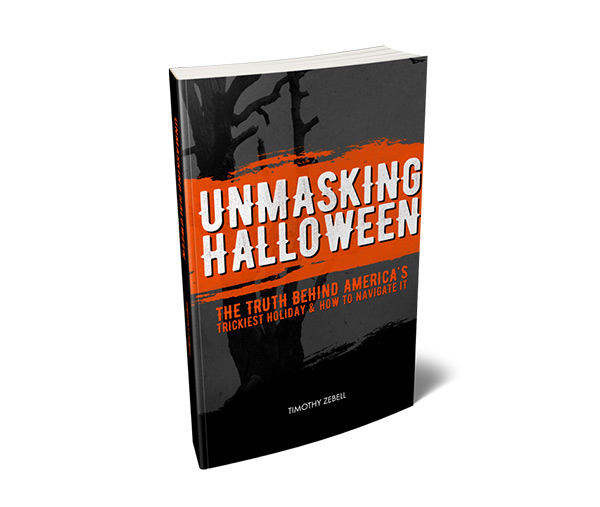After snapping 144 box office records in its opening weekend,[1] Avengers: Endgame has now sunk James Cameron’s Titanic, earning it the second highest grossing film of all time title after only 10 days.[2][3] It has earned $619 million domestically and $2.188 billion globally.[4] Being the culmination of a 22 movie story arch developed by Marvel over the course of 11 years, Avengers: Endgame is an impressive achievement and a momentous cultural event—particularly for the Millennial generation. As such, it provides us as Christians a wide-open door of opportunity to have meaningful spiritual conversations if we have the presence of mind to transition the conversation from surface level critique or fandom to the spiritual.
**SPOILERS AHEAD**
Cultural issues are fantastic conversation-starters because many people are already talking about them, and those who are not are generally aware of them. In the case of Marvel films, often several of the top talking points can easily serve as natural bridges to spiritual conversations because Marvel enjoys peppering their films with biblical references and frequently elevates their heroes to god-like status. Some, such as Thor and Quill, are outright declared to be gods and demigods. This practically begs further consideration, namely a comparison between Marvel’s gods and our God who also heroically saved the world in epic fashion.
Avengers: Endgame is no exception. Let’s consider just a few possible trains of thought for those who are interested in using this popular phenomenon as a tool for evangelism:
- Our God does not suffer from an identity crisis
Five years after Thor, the god of thunder, decapitated Thanos, we find him wallowing in grief. He is more interested in playing video games and drinking beer than he is in saving the world, or even of ruling his people in New Asgard. Throughout his solo titles, Thor was exiled from Asgard by his father, his relationship with his brother turned adversarial, and his father died. Frigga, Loki, and Heimdell were all brutally murdered, and Asgard was destroyed. By the end of Avengers: Infinity War, Thor had nothing left but his search for vengeance. However, even this was taken from him. When he drove Stormbreaker into Thanos’ chest, we was told that he should have aimed for the head. Thanos snapped his fingers and “dusted” half the world’s living population before escaping to safety.
Endgame opens with Thor decapitating Thanos, having learned from his prior mistake. But this did not bring back those whom Thanos had killed. It did not even satisfy Thor’s thirst for vengeance. Instead, it left him feeling hollow and unsure of himself.
When Thor travels through time to visit Asgard the day his mother died, he is apprehensive and in search of validation. He is unsure of who he is, and his mother helps to reassure him. Moreover, he is unsure of whether he remains worthy to wield his hammer and is relieved when it returns to him.
While Thor’s journey is emotionally engaging and great fodder for Marvel’s humor, it ultimately portrays a god whose only difference from us mortal humans are his supernatural powers. And while his hammer still deems him worthy to rule, the audience is given plenty of reason to doubt it. This is a pathetic caricature of what we as Christians mean when we use the term “God.”
Our God has never doubted Himself. Throughout Scripture, He repeatedly tells us who He is. He is the Almighty God (Jer. 32:17) who created the heavens and the earth and knows every star by name (Gen. 1:1; Isa. 40:25–26). None can compare to Him (Ex. 9:13–14). He is unique among those who claim the title of god (Ex. 15:11; Isa. 46:9). He is eternal (Psa. 90:2), sovereign (Dan. 4:35–36), wise (Dan. 2:20), honest (Tit. 1:2), good (Psa. 100:5), holy (1 Sam. 2:2), and faithful (2 Tim. 2:13). He is loving, just, and righteous (Jer. 9:24). He is merciful (Eph. 2:4), gracious (Neh. 9:17), forgiving (Dan. 9:9), and patient (Psa. 145:8). And He has saved us from our sins and granted us eternal life (Col. 2:13–14; Tit. 3:4–7). Best of all, He does not change (Num. 23:19; Mal. 3:6; James 1:17)!
- Our God does not seek redemption for Himself
Black Widow has a sordid past, although Marvel has not yet revealed it within their cinematic universe. Nevertheless, she frequently references prior shortcomings and is continually endeavoring to remove the red from her ledger. This comes to a climactic finale in Endgame.
She and Hawkeye travel to the planet Vormir to retrieve the soul gem, only to learn that the price is a soul for the a soul. The Black Widow has a special relationship with Hawkeye who lost his entire family when Thanos snapped his fingers in Avengers: Infinity War. Partly out of love for Hawkeye and his family, partly out of a sense of duty to the mission, and largely in pursuit of redemption for her past sins, she battles with Hawkeye for the opportunity to sacrifice herself as payment for the soul gem. Plunging from a cliff to her death, the Black Widow made the ultimate sacrifice in hope that by restoring half the world’s population, she could finally remove the red from her ledger.
We too serve a God who sacrificed Himself. However, He was without sin (Heb. 4:14–15; 1 Pet. 2:22). Rather than purchase redemption for Himself by His sacrifice, He purchased redemption for the world (John 1:29; 3:16; 1 Pet. 1:18–19). Today, all who choose to identify with Jesus can be forgiven of their sins and experience eternal life because of Jesus’ sacrifice (Rom. 10:9–13).
- Our God does not need a do-over
The plot of Avengers: Endgame centers around a “time heist” designed to undo the destruction Thanos wreaked in Avengers: Infinity War when the heroes failed to thwart his evil plan. Many of the heroes are despondent as they struggle to accept the reality that they failed. In a desperate attempt to make things right, they manipulate time for a second chance. In other words, Endgame is a movie about god-like superheroes who are seeking a do-over because they failed the first time.
Pastor of Michiana Christian Assembly Jeffrey Whittaker has said, “[O]ur God is so awesome, he didn’t need a ‘Do-Over’!!”[5] Our God got it right the first time. Moreover, He did this alone—not with an all-star assembly of earth’s greatest heroes.
Not only did our God defeat the greatest supervillain of all time—Satan—He also defeated the greatest enemy of all time—death. It is entertaining to watch Thor, Black Widow, Quill, Captain America, etc. defeat Thanos on the silver screen, but we should not be fooled into thinking that they deserve god-status. Their most epic fight to date only reminds us of how far short they fall when compared to the one and only true God of the Bible.
Free Downloads
Share...
1. Fuster, Jeremy. “‘Avengers: Endgame’ has Broken 144 Box Office Records… and Counting.” The Wrap, April 28, 2019. Accessed April 29, 2019. https://www.thewrap.com/avengers-endgame-144-box-office-records/.
2. Costantino, George and Michael Rothman. “‘Avengers: Endgame’ Tops $2 Billion, Bests ‘Titanic’ and Sets Sights on ‘Avatar.’” Good Morning America, May 6, 2019. Accessed May 8, 2019. https://www.goodmorningamerica.com/culture/story/avengers-endgame-tops-billion-bests-titanic-sets-sight-62854972.
3. Brevet, Brad. “‘Avengers: Endgame’ Tops $2 Billion Globally, En Route to Dominate Second Weekend.” Box Office Mojo, May 5, 2019. Accessed May 8, 2019. https://www.boxofficemojo.com/news/?id=4509&p=.htm.
4. Ibid.
5. Whittaker, Jeffrey. “Re: Though You Might Like This….” E-mail, May 3, 2019.
Unless otherwise noted, all Scripture quotations are taken from The Holy Bible, English Standard Version, copyright ©2001 by Crossway Bibles, a publishing ministry of Good News Publishers. Used by permission. All rights reserved.








